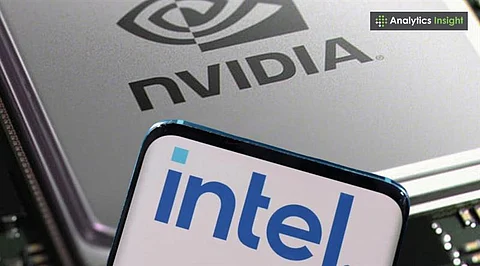

What’s New Today: NVIDIA is preparing the B30A AI chip for China, surpassing the H20, with shipments to clients expected soon.
Fast-Track Insights: SoftBank is investing $2B in Intel, buying 87M shares to become its sixth-largest shareholder, aiming to reshape semiconductor startup funding.
Here’s a quick rundown of the biggest tech headlines making waves today. Let’s dive into the day’s top stories, from NVIDIA’s B30A launch to Infosys-Wipro job dilemmas.
NVIDIA is reportedly developing the B30A—a China-specific AI chip based on its cutting-edge Blackwell architecture that surpasses the current H20 model permitted for export. The chip’s specifications are still under wraps, but NVIDIA aims to begin shipping samples to Chinese clients as soon as next month.
SoftBank is investing $2 billion to purchase 87 million Intel shares at $23 each, securing a 2 percent stake and becoming Intel’s sixth-largest shareholder. This move underscores intensified ambitions in AI and chip infrastructure, boosting Intel’s after-hours stock by over 5 percent. The deal could significantly influence semiconductor startup funding.
A 2021–2025 BTech graduate must choose between an Infosys Systems Engineer Trainee position—with a confirmed August 25 joining, ₹25K/month (rising to ₹30K/month after six months), an 18-month probation, ₹1 lakh bond—and a higher-paying Wipro Project Engineer (Turbo profile) offer with ₹5.5 LPA CTC and ₹1 lakh joining bonus, but no definite joining date, sparking Reddit caution.
In 2025, AI permeates our lives—from smart assistants to personalized social feeds—making things convenient yet overwhelming. To reclaim control, manage notifications and screen time, safeguard your data with strong passwords and privacy settings, and use AI to boost productivity, like automating tasks. Be mindful not to rely on it too heavily: balance its benefits with conscious, autonomous decision-making.
The unofficial LABUBU meme coin—inspired by the viral Labubu doll—soared over 120×, reaching nearly $75 million in market capitalization before retreating. Launched around March, it initially dipped then unexpectedly rallied in early summer. Though now in a pullback, its brief surge underscores the volatile influence of community hype and cultural trends on meme-coin markets.
